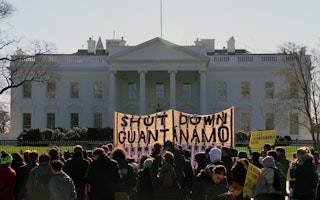Why Export Control Reform Matters
By Lora Lumpe & James Kennedy
On October 15, 2013, new federal regulations went into effect changing the way the U.S. government determines which countries can buy its military technology and information. The change will likely undermine security and human rights around the world.
What are export controls?
Export controls are the regulations that restrict the technologies and information U.S. companies can export to foreign countries. The Department of State currently regulates most defense-related technologies while the Department of Commerce regulates less-sensitive items.
Has this changed?
In 2009, the Obama administration launched the President’s Export Control Reform Initiative to overhaul the export control system. Under the new system, the Commerce Department, rather than the State Department, will regulate tens of thousands of arms and components, including some significant military equipment. U.S. companies will be able to export many items without a license.
Why did the Obama administration seek to change them?
The administration claims that the current system over-regulates a large number of items. It argued that subjecting fewer items to the State Department’s stricter controls would make it easier to protect key technologies and boost the U.S. economy by increasing exports. The large U.S. arms manufacturing companies have claimed that increased exports will create new jobs, and they have lobbied hard for these regulatory changes.
What do the changes mean for national security?
The review and licensing process at the Commerce Department is much more lax than it is at the State Department. Under the new rules, only items that provide the United States with a “critical military or intelligence advantage” will be subject to the strictest regulations. Moreover, 36 of our major allies will be eligible to receive U.S. arms without any license. But a review of previous license exemptions to some of these same 36 countries have found that Iran, China, and Libya were able to exploit these exemptions to obtain U.S. weapons and spare parts.
The changes could also undermine the Department of Justice’s efforts to prosecute companies that allegedly have exported illegal goods and services to U.S. competitors and enemies. Finally, under the new system, other countries will have every incentive to deregulate their own export controls, meaning that more arms and military technologies will flood the global market.
What does this mean for the defense industry?
Both U.S. domestic arms procurement and U.S. global arms sales have increased dramatically in the past decade, but jobs in the arms and military electronics industries have remained stagnant due to increased outsourcing of production. These changes in arms export controls will lead to higher profits for large arms and military electronics companies while bringing little benefit to smaller, U.S.-based companies in the supply chain.
How could the changes affect human rights around the world?
As items move to the Commerce Department from the State Department, some will become eligible for export without a license to countries with poor human rights records. Most worrisome is the possibility that military guns and ammunition will be subject to looser controls and will end up in the hands of abusive regimes.
But it’s not only weapons that are worrisome. The spare parts for helicopters and military vehicles being deregulated can just as easily be used to facilitate human rights violations.
Easing U.S. arms exports will result in a deregulated global arms market, as others follow our lead. Rather than stopping or stemming conflict and violence, cheaper weapons, more widely available, will most likely exacerbate violence and conflict around the world.
Until March 2020, Lora Lumpe was advocacy director for security sector governance in the Washington, D.C., office of the Open Society Foundations.
Until April 2015, James Kennedy was a program associate in the Open Society Foundations’ Washington, D.C., office.

